Like many of you, perhaps, I’ve been involved in a lot of race-related conversations at my institution lately. These conversations are usually among folks who I might, if pressed, call “allies,” “accomplices,” or even “co-conspirators”—well-intentioned, social justice advocates who are wanting to make real change at our institution, particularly in the ways we support the learning, sense of belonging, mental health, retention, and success of our underserved student populations. Yet I’ve noticed a trend in these various conversations, which, frankly, I find troubling. The trend is this: the problem (and thus, implicitly, any solution) always seems to be located elsewhere, outside the meeting space, in the ones who are not “woke”—that is, students, colleagues, and administrators ‘over there.’ This move, and it is a one I recognize and have made myself many times before, only serves to distance ourselves from the need for critical self-reflection, for taking responsibility, for offering apologies, for tough internal change.
Exploring, even confronting, ourselves is a crucial step in doing any kind of social justice work, including what we might want to be doing with students in our classes. How can we effectively lead conversations about, for instance, antisemitism or Islamophobia when we ourselves haven’t done the necessary inner work of racial justice? Professor of Law Rhonda Magee offers an “ecological model of social change,” which, yes, aspires toward interconnectedness and collective transformation, but which, first, depends on the work we do within and on ourselves. For Magee, the focus is on mindfulness, awareness, self-compassion, and resilience. What are our physical sensations? What are our emotional responses? What are our fears? What are our immediate judgments? For me, such increased awareness leads me to ask some tough questions: How am I complicit? How is my department? How is our discipline?
A few years ago, I read Irving’s Waking Up White and, I’m embarrassed to admit, realized for the first time in my life that I was, in fact, white. This set me on a course to better understand “white privilege”—how being white has affected me, what paths it has smoothed over for me, what barriers it has removed for me—invisibly, seamlessly, without me even noticing or trying. I’ve read Oluo’s So You Want to Talk about Race, DiAngelo’s White Fragility, and Kendi’s How to Be an Anti-Racist, and I’ve been unsettled, even disturbed, at some of the things I’ve discovered about myself. I won’t record them here, as I imagine they would be upsetting for some readers, but I assure you that this aspect of my social identity invariably affects how I show up as a friend, as a neighbor, as a colleague, as a team leader, as a teacher. When we talk about implicit bias, it’s not just “them,” it’s me. When we talk about microaggressions, it’s not just “them,” it’s me. When we talk about the problems, it’s not just “them,” it’s me.
Ongoing self-exploration, “fierce moral audits” as a friend of mine likes to say, is necessary as we work with and alongside our students. There are wonderful tools and resources available online, such as this Anti-Racist Educator Questionnaire and Rubric. Folks of color (like those at yourblackfriendsarebusy) have been generous in curating, writing, talking, protesting, singing, illustrating, imagining. For me, these efforts are not to (continue to) center whiteness or to get kudos and congratulations for doing what is essentially the bare minimum; it is to better ourselves before attempting to better anyone else.
In a recent blog post, Sarah Farmer wrote beautifully of her experiences with students:
Justice-seeking conversations challenge students at the core. Students aren’t just grappling with social justice concepts theoretically; they wrestle with their very identities. I invite that wrestling in the class. I want the class to be a space where they can explore, discover, challenge, reconstruct, and dream of a better world and their participation in that world together. But each of these actions require courage. I imagine my classroom as a stage, one where students are invited to “try on” these new courageous ways of doing and being socially just.
Her words work just as well if you replace “students” with “us” or “we.” This work is challenging for us. We are wrestling with our very identities. We are (or should be) exploring, discovering, challenging, reconstructing, and dreaming. Social justice requires courage—not just of them, but of us too.





